
Schedule
11:00-12:00 Registration and Lunch
12:00-1:00 Plenary
1:00-1:30 Break
1:30-2:30 Workshop A
2:30-3:00 Break
3:00-4:00 Workshop B
4:00-4:40 Closing
4:40-6:00 Reception & Board Games
7:30-8:30 Breakfast
8:30-10:00 Plenary
10:00-10:30 Break
10:30-12:00 Workshop C
12:00-1:30 Redesigning Workplaces Panel & Lunch
1:30-3:00 Workshop D
3:00-3:15 Break
3:15-4:30 Open Space & Closing
6:00-7:30 Film: Fantastic Fungi
7:30-8:30 Breakfast
8:30-9:30 Workshop E
9:30-12:00 Closing Ceremony
Session Descriptions
Jump to...
Tuesday, April 23rd
Session A | 1:30-2:30

Campeones del Sistema, changing the leadership narrative
Faviola Alderete, Jeff Corn, Lisa Kunkel
Presented in Spanish & English | Conference Room I | Download Calendar Invite
Campeones del Sistema is a community learning model initiative in Eagle County that fosters a collaborative approach to education among the Latinx community. Attendees to this session will learn how this initiative embarks participants into a transformative experience that fosters personal development and creates an environment of learning, sharing knowledge, and skill development to understand how systems work. Furthermore, during this session, participants will learn how Campeones del Sistema is changing the definition of leadership within the Latinx community in Eagle County.

Role of the Board in Building Organizational Culture
Kim Smoyer
Presented in English | Conference Room VI | Download Calendar Invite
Organizational culture needs to be intentionally created and nurtured. But the staggering pace of change, coming from all sides, can leave you feeling overwhelmed. Culture in the workplace has shifted dramatically, while structures have often not. How do organizational structures, such as management hierarchy, policies, decision-making power and privilege, affect your organizational culture? Join this session to understand the board’s role in helping to shift organizational culture.

Building Community and Connection Through Drumming
Francis Agyakwa
Presented in English | Aurora III & IV | Download Calendar Invite
Building community and connection through drumming is a therapeutic drumming experience where participants will learn how to play the Djembe drum. The experience includes connecting with other participants, working in groups, and learning how drumming helps improve cognition and interpersonal relationships.

Shake It Up and Pour it On: Moving Knowledge and Creating Meaningful Impact
Dr. Doreen E. Martinez
Presented in English | Conference Room II | Download Calendar Invite
This session explores how to understand the development of our actions, those emotional, tangible, or learned factors and variables while identifying the ripples and ruminations that come from those decisions. We will engage in information (de)coding, mapping, and translations through a grounded place-based approach. This session concludes with accountability mechanisms that can inspire as well as transform systems.
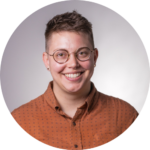
Learning Forward: Making Mistakes Toward Equity
Kale McMonagle
Presented in English | Conference Room V | Download Calendar Invite
The path a group, organization, or entire community takes toward equity is rarely linear. Along the way, we make choices with the best of intentions, but sometimes the worst of impacts. At risk along this winding road are our relationships. When we work alongside people, each with their unique understanding of our future destination, disagreement can rear its ugly head. During this session, we’ll explore tools groups can use to create a culture of learning that will allow for mistakes and repair along the way.
Session B | 3:00-4:00
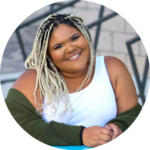

From Inclusion to Empowerment: Cultivating a Holistic Culture of Collaboration
India Phoenix, Jamie “JR” Rasmussen
Presented in English | Conference Room I | Download Calendar Invite
This workshop challenges your perception of diversity, providing a platform to explore a holistic model for genuine organizational change. Participants will gain practical tools to initiate a paradigm shift in their organizations, offering a chance to be catalysts for transformative change, creating environments that empower diverse voices. Move beyond basic inclusion through dynamic conversations, case studies, and interactive activities that transcend rhetoric. Acquire practical tools for a paradigm shift, addressing the limitations of traditional inclusion. Attendees leave not just with theoretical knowledge but equipped to foster a holistic culture of collaboration.
Training Communities on Local Policy & Systems Change: A Roadmap to Advancing Equity at the Local Level
Marc Morgan, Dr. Doreen Martinez, Kit Jones, Kale McMonagle
Presented in English | Conference Room V | Download Calendar Invite
Implementing equitable policy and systems change within local communities requires a collaborative effort. These efforts can often be complex and challenging to navigate. Many communities require the support of someone who can help guide them in this process—a coach or trainer. In 2023, the University of Colorado’s Community Organizing for Prevention evaluation team partnered with statewide subject and process matter experts to identify best practices and core competencies for coaches or trainers who support community organizers interested in implementing local policy and systems change. In this session, presenters will briefly share the findings of this evaluation and then facilitate the exploration of how session participants might be able to utilize the findings for their work. Participants will also hear from other trainers and coaches about their challenges and successes around this topic, in hopes that others can learn from their experiences moving forward.

Nuestra Historia: Creando Comunidades y Transformando Realidades.
Bianca Gardie, Isabel Zamora, Susana Martinez
Presented in Spanish & English | Conference Room II | Download Calendar Invite
Our mission is to support the immigrant community by providing resources and comprehensive assistance in the pillars of health, education, culture, and economy. We work tirelessly to create opportunities that foster a full and successful life, building bridges for integration and sustainable development. In this session, we will talk about our history, from getting to know each other in leadership workshops, to registering our own organization, and how we have come to create relationships with a wide range of volunteers and institutions to work in service of the community. Part of our story has also been the challenges we have encountered and how we have overcome them by finding alternative solutions that foster collaboration.

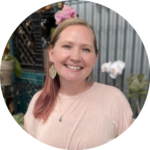
Reimagine: Impact
Teva Sienicki, Joy Concepcion
Presented in Spanish & English | Conference Room VI | Download Calendar Invite
Ever felt limited in addressing specific issues due to their interconnected nature? Have you been accused of “mission creep” when you try to address the try root causes of your issue? In this session, we’re going to explore how to strategically approach systems change with an eye toward these intersectionalities. We’ll talk about how we can collectively build a progressive movement in Colorado to advance our specific issues while collectively creating a more equitable Colorado where everyone can thrive. Reimagine Colorado is a collective of organizations, activists, and networks working together to make this vision a reality.

Building Community and Connection Through Drumming
Francis Agyakwa
Presented in English | Aurora III & IV | Download Calendar Invite
Building community and connection through drumming is a therapeutic drumming experience where participants will learn how to play the Djembe drum. The experience includes connecting with other participants, working in groups, and learning how drumming helps improve cognition and interpersonal relationships.
Wednesday, April 24th
Plenary | 8:30-10:00
Catalyzing Systems Change through Listening – A Case Study of Deep Canvassing
Presented in English & Spanish | Aurora II
Learn about deep canvassing and how its techniques to build a culture of respect, dialogue, and engagement across difference can support bold systems change. Deep canvassing is a community organizing model that centers deep, authentic listening to voters who remain undecided about critical civic issues. Although it is used with a definite goal in mind—persuading voters to take a certain position on an issue—it elevates listening, dialogue, and respect for the dignity of each person’s views even above success on the initiative itself.
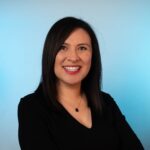
Carmen Medrano, United For A New Economy
As Executive Director, Carmen guides UNE to deliver on its mission of building people power for racial and economic justice. Through her relational leadership skills, organizing experience, commitment to economic justice and love for Colorado, she skillfully directs organizational strategy and maximizes UNE’s impact in Colorado. Carmen cultivates a powerful team of staff, ensuring that every aspect of the organization, from community organizing to civic engagement, finance and fundraising, fuels UNE’s mission. Carmen also leads UNE’s statewide campaigns. She serves as the co-chair of Colorado Homes For All, a statewide housing coalition of organizations focused on building a grassroots housing movement for equity and justice for all people. In 2024 COHFA led the legislative campaign to pass For Cause Eviction, one of the most substantial legal changes yet to increase the rights of renters. In 2020, Carmen co-chaired the statewide campaign that successfully passed paid family and medical leave for all workers in Colorado, becoming the first state in the nation to pass this policy through the ballot. Currently, she sits on the board of Partnership for Working Families, Right to the City Action Fund and New Era Colorado. Carmen was born in Mexico and came to the US at the age of 4. She grew up on Colorado’s western slope and began organizing as a student. Carmen discovered her voice and power through community organizing, and her vocation is to walk with others through this same journey. She believes this is what can transform Colorado and our country. Carmen lives in Denver with her husband and two children.
Session C | 10:30-12:00


How to Lead and Shift Culture with a Radical Heart
Maren J Miller, Nikki Murillo
Presented in English | Conference Room VI | Download Calendar Invite
This session is about embracing a Radical Heart and learning how to lead and cultivate meaningful relationships to authentically and sustainably shift culture. In today’s world, equity and anti-racism are increasingly essential, and cultivating a Radical Heart becomes an ever evolving journey. Come discover powerful insights and practical strategies that will empower you to tap into your own Radical Heart and create positive transformational change for sustainable equity work for yourself and your organization. Leave with a deeper understanding of how Emotional and Cultural intelligence and systems work can impact our personal and professional journey toward equity and inclusion.

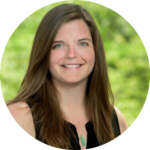
Evaluations: A practice to be in reciprocity with others
Yen Chau, Noelle Dorward
Presented in English | Aurora III & IV | Download Calendar Invite
We traditionally think of evaluations as an extractive accountability tool. Let alone as part of our process to be in relationship with one another that center on reciprocity and shared learning. Furthermore, many of us assume that “good evaluators” need to be objective, unconnected to the program. This session will explore: What would our evaluation practice feel like, look like if all of us – evaluators, program developers, participants, funders, etc. – were centered on reciprocity? We will offer some things to play with in our evaluation practice that centers not on the data but on the people (including ourselves) and relationships.
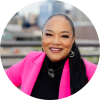
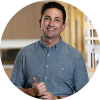

Voices Unveiled: Shifting Community Narratives
Angelle Fouther, Will Holden, Gabrielle West
Presented in English | Conference Room II | Download Calendar Invite
Dive into the heart of community transformation with our interactive, 90-minute workshop, where we will explore practical strategies and tools to guide community members in actively shaping and influencing the narratives within their respective communities. With a focus on the overarching event theme, “Culture Shifting: Creating the Conditions for Transformational Change,” our session will provide participants with actionable insights and hands-on activities. The workshop will kick off with an engaging discussion on the role of community narratives in driving cultural change. Drawing on real-world examples and success stories, participants will gain a deeper understanding of the impact storytelling and citizen-led media can have on reshaping perceptions and fostering positive change. Through interactive exercises, attendees will have the opportunity to develop their storytelling skills and learn how to leverage various media platforms to amplify their community’s voices.


From Doing For to Doing With: A road map for moving from Community Engagement to Co-Creation
Adrienne Russman, Cristina Lara-Agudelo
Presented in Spanish & English | Conference Room V | Download Calendar Invite
Ready to transition from charity to impactful solidarity work? Whether you’re a community engagement beginner or trying to level up your efforts, this hands-on workshop is your next step. Join us to tackle challenges like more effectively engaging your community, increasing active participation in your organization’s mission, and diversifying your board. In this session, we’ll assess your current engagement level, share practical strategies to overcome hurdles and leverage your community’s strengths.
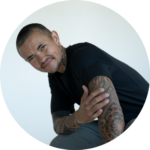
Breath-Based Movement
Jordan Smiley
Presented in English | Conference Room I | Download Calendar Invite
What does it mean to move with the breath? This gentle, somatic yoga practice will offer us the opportunity to listen deeply to the swirls and the eddies of our “breathprint,” and to allow the inhale / exhale patterns to speak through the body in the form of movement. Together we’ll explore seated, standing, supine, partner and communal yoga postures from the foremost heritage tradition of South Asia and North Africa, Haṭha yoga, that investigate structure, invite spontaneity, and invoke nervous system regulation. The larger inquiry at play is how minute, internal changes ripple through systems – and how we can learn to trust the intelligence of our individual bodies to guide our relational and collective efforts toward lasting and meaningful growth. *Mats are welcome, but not required. This practice will be appropriate for all bodies, and folks with any (or no!) experience with yoga are encouraged. Comfortable clothes are recommended.*
Plenary | 12:15-1:15
Redesigning Workplaces Panel
Presented in English & Spanish | Aurora II
Hear from leaders who are working to change their organization to reflect a more equitable world.

Nathan Schmitt, HadaNõu Collective
For nearly a decade, The HadaNou Collective (HNC) has found our own unique approach in issue areas ranging from decision-making and team structure, to planning and coordinating across the team, to anything you’d find in a workplace policy handbook. HNC’s core programs are focused on helping nonprofits and foundations develop approaches to these issues that are aligned with their organization’s identity, and on helping them iterate on these approaches until they work for their team.
Dolores Ramirez and Joël McClurg, Blueprint to End Hunger
The Colorado Blueprint to End Hunger has made a shift to a co-leadership model recognizing that successfully performing these duties is best suited for a collaborative effort with distinct organizational functions for each director. This helps reduce any organizational echo-chambering and provides for diverse perspectives in many facets of decision-making.

Lucrecia Medrano, Yarrow Collective
The unique cultural shift in Yarrow is rooted in approaching mental health and substance use struggles with consent & choice, empowering voices of lived experience. Those with lived experience are typically the least empowered in conventional mental health & substance use treatment systems. At Yarrow Collective, we believe strongly in “nothing about us without us” (to borrow a phrase from the disability justice movement), and prioritize those with “boots on the ground” in how we make programming and leadership decisions.

Bre Dóvez, Joy as Resistance
Joy as Resistance took liberation and radical trust – two of their most important values – and turned them into concrete policies and practices. This plan unfolded over the majority of 2022 and was dedicated to sensing our needs and creating clear action plans for improving organization-wide systems. Explore what resistance in practice looks like.
Session D | 1:30-3:00

Regulate to Relate: First Steps in Creating a Culture of Care and Belonging
Vani Tangella, Audra Bishop
Presented in English | Conference Room VI | Download Calendar Invite
Cultivating cultures of care and belonging require us to acknowledge people’s experiences and historical trauma. Anchored in equity, this session highlights how teams can begin creating trauma-informed and stress-responsive environments. For people to be innovative, creative, and capable of navigating change and cultural differences, they must engage in strategies that support nervous system regulation. Regulation is an access point for thriving. This session bridges neuroscience, trauma-informed principles, and somatics with ancient wisdoms. By developing a shared understanding of how stress impacts the brain & body, individuals become increasingly attuned to their own needs, while nurturing collective regulation and transformational change.
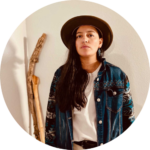
Energy Cultivation for Sustainable Change
Bianca Acosta
Presented in Spanglish | Conference Room I | Download Calendar Invite
In this workshop we will explore a series of somatic practices rooted in qigong and traditional knowledge that supports personal and community change and conscious impact. Bianca is a queer Mestizo-indigenous woman from Mexico. She is certified in somatic Qigong and a practitioner of curanderismo/traditional healing and ritual danza in the lineage of her Mexikah ancestors. She weaves her practice of Qigong and traditional healing as tools for liberation of body, mind and Spirit.

The Chains We Must Lose: From Destructive to Constructive Workplace Conflict (And Beyond)
Regan Byrd
Presented in English | Aurora III & IV | Download Calendar Invite
Destructive, unhealthy conflict, both internal and external to organizations, endangers and undermines all our other work, from anti-oppression to creating lasting impact. We cannot build resilient organizations without this work, yet most organizations fail to recognize the need for explicit, responsive processes and infrastructure to support harm reduction and generative conflict amongst employees, clients, constituents, and more. This session will review key transformative justice principles and how to apply them practically in your organization’s operations and increase the presence of healthy, generative conflict.

Finding Our Voice – Inclusive messaging for movement building
Juanita Luevano, Brandon McKinley
Presented in English | Conference Room II | Download Calendar Invite
Together, we’ll learn how to develop from the language of charity to the language of solidarity. Join us to explore how to shift the frame of reference from advancing issue-specific solutions to going after root causes together, and how to widen the aperture of our messaging toward an inclusive approach that galvanizes our base while appealing to the “Moveable Middle.” We’ll use Metro Caring’s shift in focus from hunger relief to root causes as a case study to share what we’ve learned, how we’re applying research-backed messaging models, and the questions we’re asking ourselves and our community.


The Coalition Facilitator – a peer-led practice workshop for the folks holding this tough and vital role
Alice Pugh, Morgan Schmehl
Presented in English | Conference Room V | Download Calendar Invite
Stuck in an endless cycle of sharing updates? Tired of coalition meetings where only a few partners show up? Is conflict bubbling under the surface? At their best, coalitions can be spaces for collaboration across communities, building stronger relationships and connections, engagement across diverse stakeholders, and fertile ground for innovation. At their worst, they can be demoralizing and sticky. Whether you are brand new to the role of facilitating a coalition or have been at it for years, whether you’re working in food justice or housing or health equity or a group of neighbors, what does it take to create the container for transformational change? In this interactive session, the Civic Canopy will share tools and skills from years of research and practice, and we’ll create space for the experts in the room—the facilitators and spaceholders—to share stories, wisdom, and learn from each other how to embody this role as a coalition facilitator.
Film | 6:00-7:30

Fantastic Fungi
Presented in English | Conference Room VI
When so many are struggling for connection, inspiration and hope, Fantastic Fungi brings us together as interconnected creators of our world.
Fantastic Fungi, directed by Louie Schwartzberg, is a consciousness-shifting film that takes us on an immersive journey through time and scale into the magical earth beneath our feet, an underground network that can heal and save our planet. Through the eyes of renown scientists and mycologist like Paul Stamets, best-selling authors Michael Pollen, Eugenia Bone, Andrew Weil and others, we become aware of the beauty, intelligence and solutions the fungi kingdom offers us in response to some of our most pressing medical, therapeutic, and environmental challenges.
Thursday, April 25th
Session E | 8:30-9:30


Empowering Our Communities: Skills and Resources to Advance Local Leadership
Melina Valescia, Erin Janklow
Presented in Spanish & English | Conference Room I | Download Calendar Invite
Elevar is building an ecosystem of support for both entrepreneurs and successful business owners in the Eagle Valley, uplifting both groups in tandem. It is a two-tiered program built to develop and empower the next generation of local businesses. This includes funding, mentorship, networking, development opportunities, and more to grow local businesses successfully and sustainably. Learn how the program is designed and how it is integrating into the community. Our goal is to help you identify opportunities to catalyze change within your community.
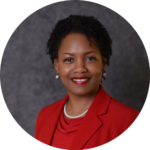
Advancing Social Equity through Affordable Housing Policy
Djuana Harvell
Presented in English | Conference Room V | Download Calendar Invite
Studies show that affordable housing linked with resident-centered support services can lead to improved health and stability. To address unmet needs, be well established a be well Center in a local affordable housing complex that allows organizations to provide in-house support. be well is working to advance social equity through the implementation of a Standard Partnership Policy that would allow organizations to provide support services on an ongoing basis. A Resident Advisory Council was also established to inform the activities of the be well Centers. Through the be well Center, be well and its partners provide family-focused, wraparound services to equip families with knowledge, tools, and resources to recover from the impact of COVID-19. As a result of this model, be well has facilitated an increase in residents’ access to vital resources, community connectedness, leadership, confidence in voicing resident needs, and an ability to elevate priority challenges to key decision-makers to help individuals and the community thrive.

Creating Community-Led Change with the Community Guide Program
Sabrina Slagowski-Tipton
Presented in English | Conference Room VI | Download Calendar Invite
This session will introduce the Community Guide program piloted by the Center for Public Deliberation and the City of Fort Collins. Our program provided facilitation training/ meeting in a box tools to community leaders and tasked them with holding conversations about housing and health in FoCo. Data from these conversations informed parts of the Housing Strategic Plan and a Land Use Code update. This model helps us center lived expertise and understand how facilitation and deliberation work alongside collective action and advocacy. Participants will join a conversation to brainstorm the norms we should emphasize when working to create community-led change.

Deep Dive on Quadrant 4: Changing Systems
Bill Fulton
Presented in English | Aurora III & IV | Download Calendar Invite
This session will provide participants with the chance to do a deeper exploration of the 4 Quadrant Model by reviewing what transformation involves in the “external collective” quadrant—including systems, policies, structures, and networks. More applied discussion than presentation, this session will surface questions, share tools and resources, and help participants understand how they might take practical steps to shift the systems and structures that might be constraining them into forces that help communities thrive.
Guide to Sessions
The 2024 Canopy Summit will feature 25 sessions on what it takes to work together towards culture change. Each session will feature skills related to each area of the Community Learning Model and will feature a variety of learning styles. Use the following guides to help you navigate each session.
Use the following icons to understand which sessions will focus on each area of the Community Learning Model (CLM).
![]() Results How do groups create a result they want to achieve? How do they measure their progress toward that result?
Results How do groups create a result they want to achieve? How do they measure their progress toward that result?
![]() Include How do groups ensure the various people, perspectives and systems involved in the work are engaged in the process?
Include How do groups ensure the various people, perspectives and systems involved in the work are engaged in the process?
![]() Dialogue How do groups create a high-quality conversation that clarifies values, surfaces tensions, and taps into creativity? How do we establish conditions of genuine respect for the views and needs of the other?
Dialogue How do groups create a high-quality conversation that clarifies values, surfaces tensions, and taps into creativity? How do we establish conditions of genuine respect for the views and needs of the other?
![]() Act How do groups make sure the planning leads to action, both within planning processes and at each stage of implementation?
Act How do groups make sure the planning leads to action, both within planning processes and at each stage of implementation?
![]() Learn How do they learn from experiences and translate that information into more effective actions? How do groups ensure actors remain accountable to a shared vision and “return learning to the system” as a mutual contribution?
Learn How do they learn from experiences and translate that information into more effective actions? How do groups ensure actors remain accountable to a shared vision and “return learning to the system” as a mutual contribution?
![]() Culture of Collaboration How do groups strengthen the capacities that support collaborative work such as facilitative leadership, communication, information sharing, and shared accountability?
Culture of Collaboration How do groups strengthen the capacities that support collaborative work such as facilitative leadership, communication, information sharing, and shared accountability?
While many conferences feature inspiring speakers with valuable expertise, they tend to focus on just one learning style. The Canopy Summit will feature sessions that engage participants’ head, heart, and hands.
Use the following icons to understand which sessions will engage the following learning styles.
![]() Head – These sessions will get people thinking and learning with their brains. It may include a presentation, data, or a toolkit.
Head – These sessions will get people thinking and learning with their brains. It may include a presentation, data, or a toolkit.
![]() Heart – These sessions will get people feeling with their heart. It may include storytelling, art, or a performance.
Heart – These sessions will get people feeling with their heart. It may include storytelling, art, or a performance.
![]() Hands – These sessions will get people moving. It may include a hands-on activity, dance, or exercise.
Hands – These sessions will get people moving. It may include a hands-on activity, dance, or exercise.
The Summit will be conducted in English and Spanish, and all sessions will have bilingual interpretation and translated materials. Wearable interpretation devices will be available for all participants. Below you’ll see which languages the presenters will provide each session in. If you don’t speak that language, don’t worry, you’ll have interpretation.



